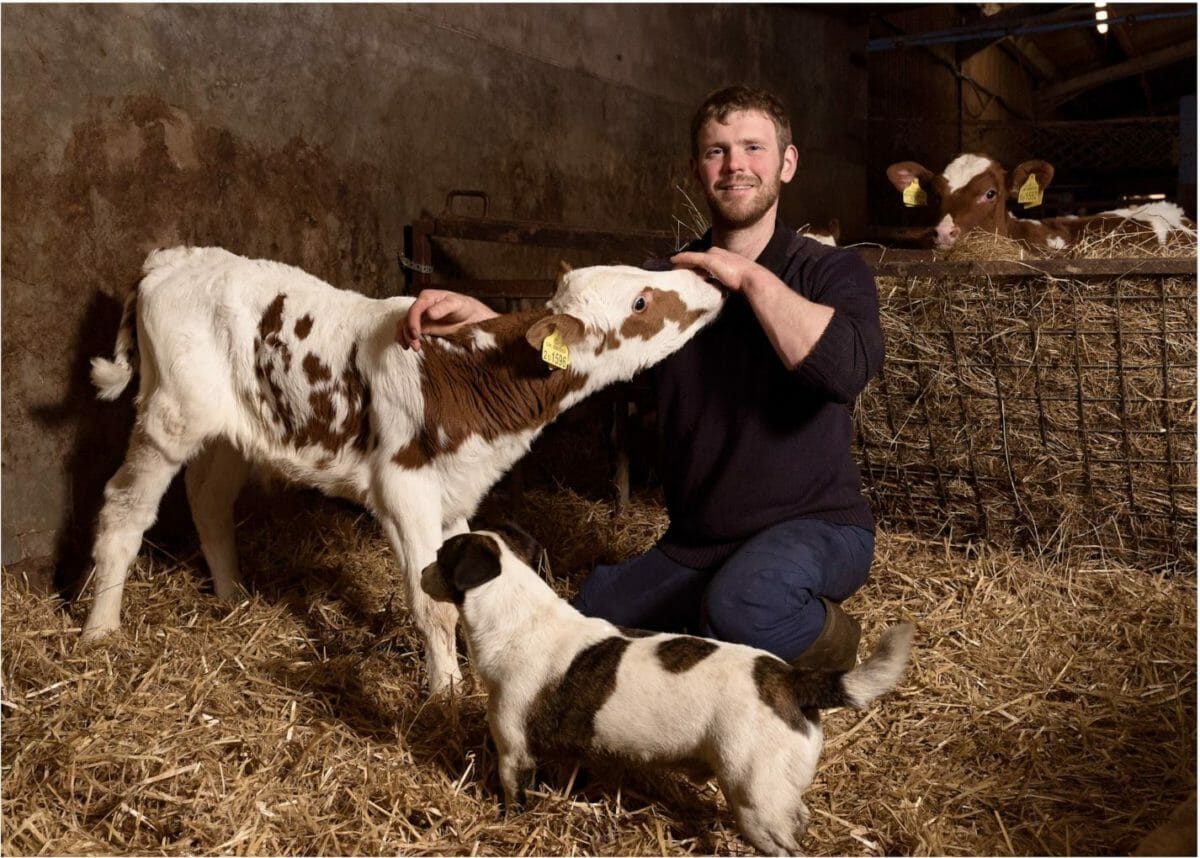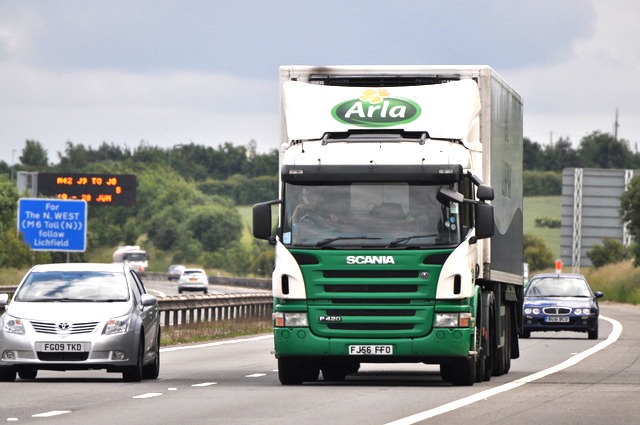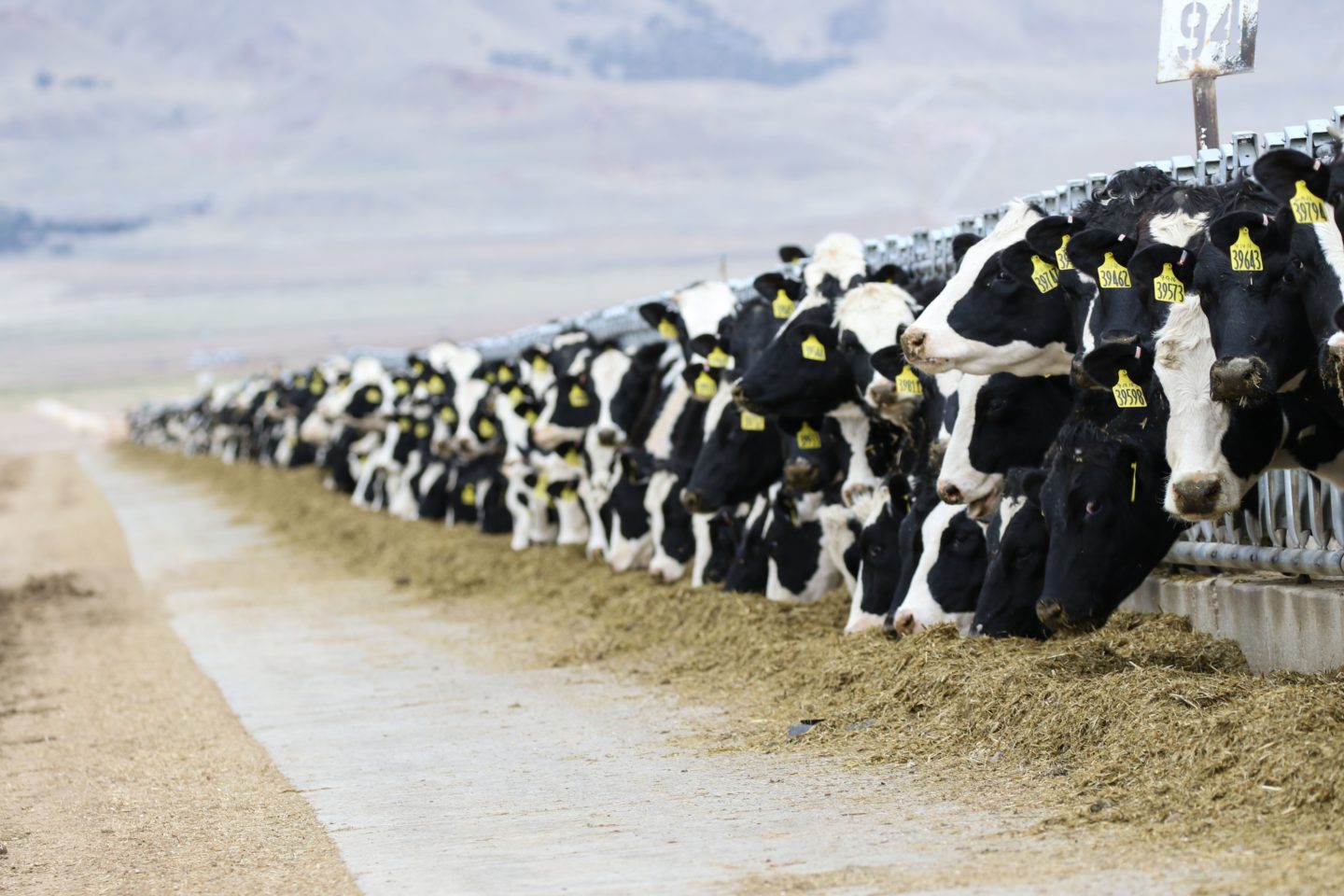The Scottish and UK Governments are being urged to change the rules to stop “mega dairies” and supermarkets paying low milk prices and offering “unfair” contracts to dairy farmers, who say they are being “forced out” of business.
A National Farmers Union of Scotland (NFUS) briefing warned that many farmers face “a David against Goliath situation” when dealing with big milk processors.
It wants to see the introduction a mandatory code of conduct for dairy contracts with fines issued to those who don’t adhere to them.
NFUS urged members to contribute to a “once in a lifetime” opportunity to call for fairer rules to improve the industry, in a UK-wide government consultation.
Already low prices offered to dairy farmers for milk have been further reduced throughout the Covid-19 pandemic, leaving some struggling to survive.
NFUS claimed that when the dairy market is unstable, milk processors hold all the bargaining power and can lower prices without revealing their pricing mechanisms, introducing “retrospective penalties and price cuts without negotiation”.
As almost all contracts contain exclusivity clauses, most farmers can sell milk to only one supplier and are powerless to seek out better deals, NFUS said.
The Scottish Conservatives stressed the dairy industry had faced “a significant upheaval” in recent years, with regional contract differences creating “an unfair basis for farmers to deal with supermarkets and large dairies”.
The Scottish Government acknowledged dairy farmers were often in a weak negotiating position and promised to “carefully study” the consultation responses.
A 2019 Scottish Government-commissioned study of dairy contracts found that the top five processors (which it did not name) accounted for around 94 per cent of all milk collection in Scotland, with the top two accounting for around 56 per cent.
Most dairy contracts offered by processors included exclusivity clauses, making it difficult for them to argue up prices.
Dairy farmer nearly ‘forced out’ by mega dairies

Bryce Cunningham is a dairy farmer who runs Mossgiel Farm in Mauchline, East Ayrshire. He told The Ferret that “supermarkets and mega dairies have been trying to drive the price of milk into the ground, and farmers have had to bear the brunt of that.”
Before running Mossgiel himself, Cunningham said that low milk prices led his father and grandfather to double their number of Ayrshire cattle to around 160. This allowed them to use “economies of scale” to cut running costs and boost milk production.
Cunningham also knows of other dairy farms having to double or triple their herd sizes to survive. “For the past 20 or 30 years, the consensus has been you get big or you get out”, he said.
When he returned to manage Mossgiel in 2015, the market’s excess milk supply led to an international price collapse. The farm was told that in a month, it may be paid a few pence less for its milk, which “ended up being 12 pence a litre”.
Cunningham said that Mossgiel went from being paid around 27p a litre to 9.6p in a year, and tied into “one of the lowest priced contracts in the UK” without a say. Mossgiel had lost £110,000 in a year, “which just started a chain reaction.”
Supermarkets and mega dairies have been trying to drive the price of milk into the ground, and farmers have had to bear the brunt of that
Bryce Cunningham, Mossgiel Farm
Cunningham’s bank manager pulled funding, his landlord began to question the business’s viability, and even its ability to pay rent. This led him to sell three-quarters of his herd and a small amount of land.
“I was pretty much forced out of dairying by mega dairies”, said Cunningham. He wasn’t the only one. Many farmers in the west of Scotland were forced to “come out of dairying and sell their farms just to keep going”.
He claimed that some farmers had even lost their contracts – and businesses – after breaching clauses by selling small amounts of milk locally, or just speaking to others about price drops.
After his own ordeal, Cunningham terminated his dairy contract and turned Mossgiel into an independent, organic-certified farm, selling its own non-homogenised milk direct to locals and coffee shops across Scotland.
He is now a customer of the Organic Milk Suppliers Cooperative (OMSCO), which Cunningham said offers flexible contracts and the highest possible milk price to farmers.
Despite Mossgiel’s success, Cunningham is still concerned about the future of farmers on traditional milk contracts. “The amount of money you’re having to invest in farms to remain efficient, to remain on the radar and meet all the regulations is becoming more and more”, he warned.
Milk prices ‘leading to bigger dairy farms’ and excess milk
In 2019, The Ferret reported a growing trend of fewer but larger dairy herds, with the average herd size growing by eight per cent in just six months. Statistics from the first half of 2020 released by the Scottish Dairy Cattle Association showed a continuation of this trend.
Food justice campaign group Nourish Scotland told The Ferret at the time that low milk prices were “indicative of why we’ve got fewer herds but more cows”. But this is reportedly leading to a glut of milk.
Müller announced in 2019 that an unprecedented 25 per cent surge in Scottish farm milk production led to a substantial excess. Surplus milk was transported to England via thousands of tankers travelling “2.5 million miles each year”. This led Muller to reduce the amount of Scottish milk it bought and introduce transport charges for Scottish dairy farmers.
Professor Mark Sutton, an environmental physicist with the research Centre for Ecology and Hydrology told The Ferret in 2019 that Scottish dairy trends were driven by economics.
When EU milk quotas, set up in 1984 to prevent overproduction, were lifted in 2015, it “created a free for all” where the dairy industry has tried to produce as much milk as it could, which in turn has kept milk prices low, said Sutton. “This is tough for smaller producers who are often not as economical as big producers,” he added.
Milk prices and contract regulation – what should governments do?

NFUS believes that dairy contracts must have a mandatory code of conduct, enforced by a body made up of both processor and farmer representatives. Any party in breach of the code should be fined, it proposed. A structure similar to the UK Government’s Grocery Code Adjudicator (GCA) was needed, it adds.
In 2018, the government’s GCA review found that dairy farmers lacked bargaining power. It noted “examples of unfair or unclear contract terms”, as well as late payments from processors to farmers, and “a lack of trust and transparency”.
This led the Department for Environment, Food & Rural Affairs (Defra) and the UK’s devolved governments to launch the dairy contract consultation.
In the supply chain, cost-cutting and closing processing plants have caused job losses across Scotland.
Oliver Mundell, Scottish Conservatives MSP
Scottish Tories rural economy spokesperson Oliver Mundell MSP said regional contract differences created “an unfair basis for farmers to deal with supermarkets and large dairies”. He added: “In the supply chain, cost-cutting and closing processing plants have caused job losses across Scotland.”
In 2019 a Scottish Government-commissioned study of dairy contracts noted that 13 European Union countries had introduced laws on mandatory written contracts (MWCs). The report said MWCs could be applied in Scotland, but stressed that specific conditions would need to be negotiated between farmers and processors.
It suggested that contract exclusivity clauses could be replaced by required volumes of milk to be produced by farmers, alongside pricing and minimum contract duration guarantees.
The report called on the government to encourage and initially fund the formation of farmer producer organisations, and to aid collaboration between farmers, processors and retailers.
The government told The Ferret that “consensus among agricultural producers in the UK is that unequal bargaining power with processors and retailers can expose farmers to unfair treatment”.
A spokesperson confirmed the Scottish government had contributed to the Defra-led consultation and that rural economy secretary Fergus Ewing MSP had encouraged all dairy farmers, processors and their representatives to take part.
Mossgiel Farm’s Bryce Cunningham claims there is “no easy answer” to the issue. He said supermarkets already make a loss from the prices at which they sell milk, as they know it brings in customers.
Installing a higher universal milk price would likely lead to processors charging more to supermarkets, who would pass the costs on to consumers and result in higher food prices, he warned. This may push out even more smaller dairy farms.
“There’s a three-way problem going on here that there’s no easy answer to”, said Cunningham. “So far it seems the easiest option has been to let the farmers pay for it, but that can’t continue forever”.
Dairy farmers hit by Covid-19 milk price drops

Dairy farmers were hit by drops in the price of milk throughout the Covid-19 pandemic. These included Arla Foods UK and Müller UK and Ireland, which The Grocer listed as the biggest dairy firms in the UK in 2018 by far.
In August, Müller was accused of freezing milk prices at “unviable levels” over the past year, leaving some farmers struggling to meet monthly costs, the Scottish Farmer reported. The Müller Milk Group (MMG) board – which represents 1,550 UK farmers – said the mechanism which sets the milk price paid to suppliers is “fundamentally flawed”.
Müller told The Ferret that it was “surprised by the MMG Board’s criticism of our decision to maintain a stable milk price during the Covid-19 crisis”. A spokesperson said that many Müller farmers had opted “to manage volatility by fixing the price they receive for a portion of their milk supply”.
Arla UK told The Ferret that it is “a cooperative owned by farmers” and “the whole purpose of our organisation is to deliver the maximum benefits to them as our owners.”
Header image thanks to pxfuel















Your article goes some way to explain what there are so many derelict farms in the neighbourhood.
I’m Tom Bullock Salano from Kenya, and I need to know more about dairy farming and sheep keeping